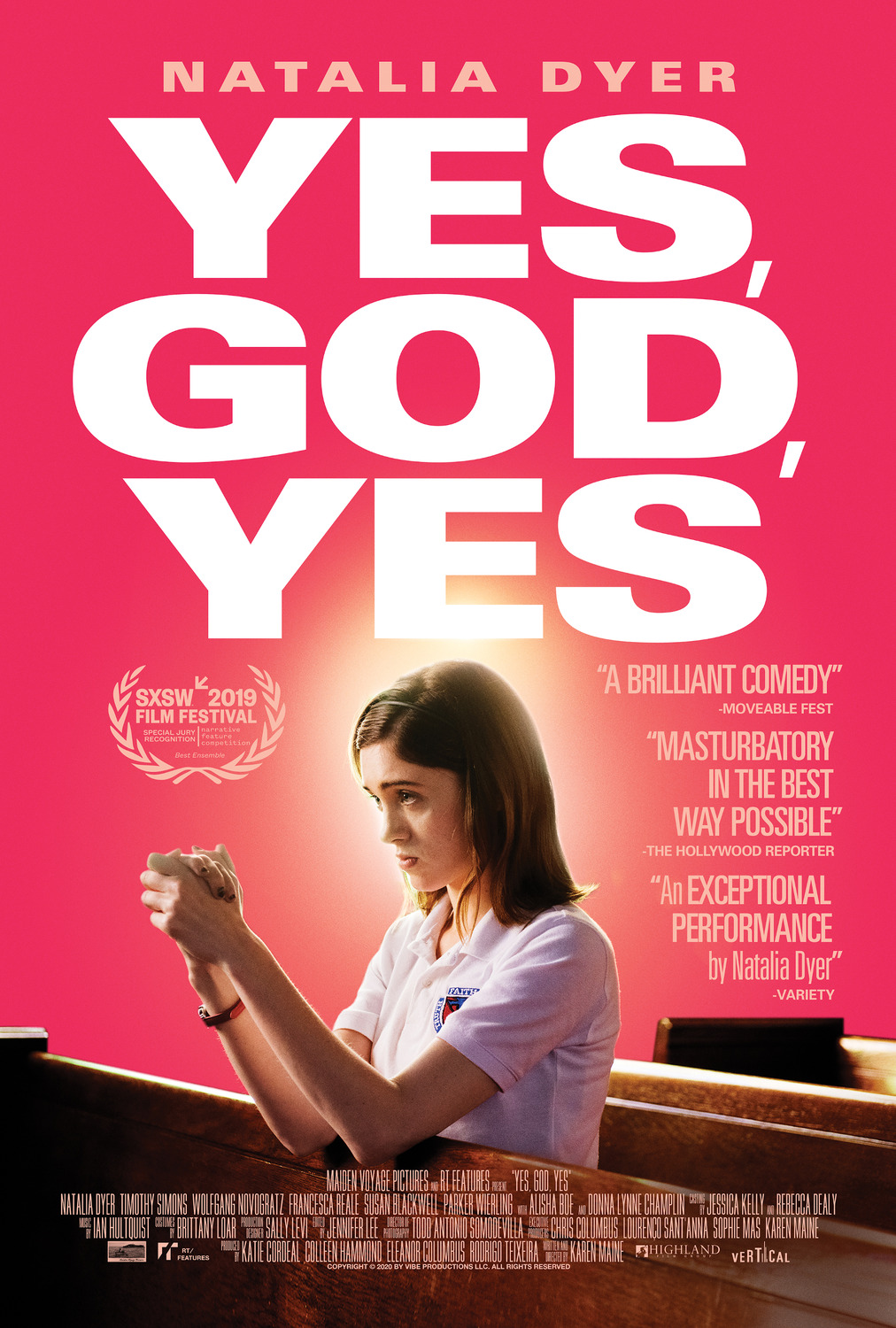When a film opens with a quote from Revelations about faithless and sexually amoral people and then follows it with an Urban Dictionary definition of “tossing someone’s salad”, we can safely assume we’re in for a bit of terrific. And writer-director Karen Maine’s satire/polite skewering of private Catholic schools, Yes, God, Yes, is just that.
Based loosely on Maine’s own conflicted adolescence, the film stars Natalia Dyer as Alice, a meek, virginal high schooler in a sleepy Midwestern town in the late 90s. Alice sits through class after class, learning about damnation and abstinence, and then heads home to secretly rewatch Titanic, making sure to pause-and-rewind the sex scene in the old-timey car. Later, when an anonymous AOL chat with a stranger leads to cybersex, things get even more complicated for the naive teen.
Life in the high school halls isn’t any easier. After someone floats a nasty rumor that she “tossed” a classmate’s “salad”, Alice finds herself ostracized even more than she had been already (along with not having a clue what the euphemism even means). Eventually, she signs up for a weekend-long, school-sponsored Christian retreat, in the hopes that she can make some sense of it all, and it’s here that Yes, God, Yes kicks into gear.
Once at the camp, Alice finds herself drawn to manly counselor Chris (Wolfgang Novogratz), a fellow student and (naturally) the stud of the football team. As abstinence and purity continue to be the order of the day, however, her internal conflict gets stretched even thinner, and she eventually retreats from the retreat, only to find herself at, of all places, a lesbian biker bar.
While Maine could have easily written Yes, God, Yes as a mean-spirited castigation of not only Catholic schools but the religion as a whole, she wisely keeps things in check. Instead, she offers up a razor-sharp and economical (78-minute) satire punctuated with no shortage of thought-provoking observations about her own faith and upbringing; humanity itself provides more fodder than anything else in Maine’s brilliant film. In addition, her use of late-90s popular culture gives the film a genuine period feel that only adds to the authenticity. (The good-ol’ Nokia cell phone Snake game is featured prominently, and the closing credits song—no spoilers!—is an absolute gem.)
Dyer, who broke out as a supporting player in Netflix’s Stranger Things, gets her chance to not only take center stage but to demonstrate her obvious, understated talent. Her nuanced puzzled and passive looks are only a few of the subtle ways she brings Alice to life as one of the more memorable characters of the 2020 pandemic movie season.
Maine’s directorial debut is a thing of beauty, to be sure—a biting, semi-autobiographical look at one woman’s upbringing and how it intersected with the all-too-human urges inherent in one’s the teenage years. It’s as good as they come in the realm of low-budget Indie films. Call it a bit of a religious experience.
Rating
4.5/5 stars
